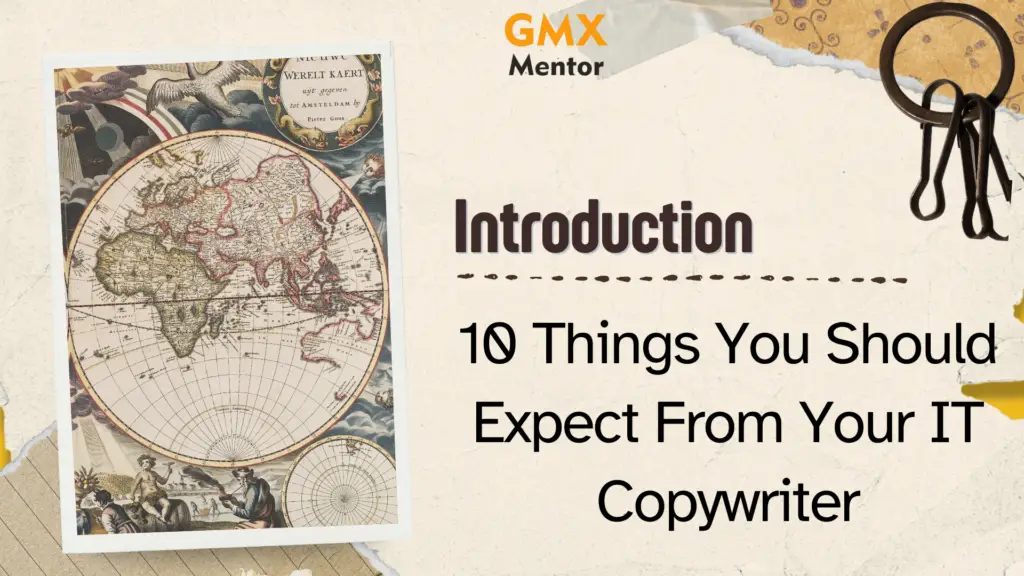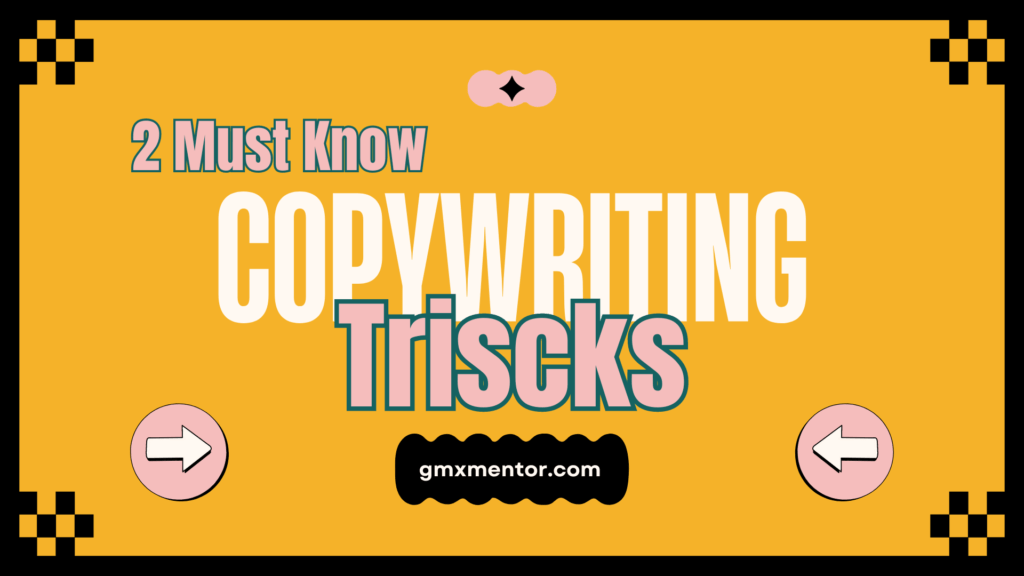Introduction
10 Things You Should Expect From Your IT Copywriter
In the fast-paced world of Information Technology (IT), where innovations are constant and competition is fierce, effective communication is vital. Marketing IT products or services is a specialist endeavor that requires not only technical know-how but also the ability to convey complex information in a way that resonates with both technical and non-technical audiences. For this, you need a skilled IT copywriter—someone who understands the intricacies of the IT landscape and can translate them into compelling copy.
This is the Table of Contents You Can Go to Any Part of the Post just by Clicking Here.
But how do you identify a proficient IT copywriter? What should you expect from them? This guide will explore 10 critical aspects to consider when selecting an IT copywriter, ensuring that your marketing efforts are supported by quality content that drives results.
1) A Strong IT Background
A deep understanding of the IT industry is essential for an IT copywriter. The best IT copywriters have firsthand experience in the field, whether through previous roles in IT companies, technical education, or extensive work in related sectors. This background allows them to grasp complex concepts quickly, reducing the time you spend explaining the nuances of your product or service. They can speak the language of IT, ensuring your copy resonates with your target audience and accurately reflects your brand’s expertise.
Moreover, an IT copywriter with a strong technical background will be able to differentiate between important features and those that might be less relevant to your audience. They can identify the key selling points that will make your product or service stand out in a crowded market.
2) Technical Writing Experience
Technical writing experience is a significant asset for any IT copywriter. The ability to distill complex technical information into clear, concise, and engaging content is a skill that comes with practice and experience. Technical writers are adept at bridging knowledge gaps, making them ideal for projects where the audience’s understanding of IT concepts may vary.
However, it’s essential to ensure that your IT copywriter can do more than just technical writing. While they need to understand the technology, they must also be capable of writing persuasive and compelling copy that goes beyond mere instruction. Their writing should be able to drive action, whether that’s encouraging a potential customer to request more information, download a whitepaper, or make a purchase.
When selecting an IT copywriter, ask to see examples of their work that demonstrate both their technical understanding and their ability to craft engaging copy. Look for evidence that they can write content that is not only informative but also persuasive.
3) Formal Education and Continuous Learning
10 Things You Should Expect From Your IT Copywriter, While a formal education in IT or a related field is not always necessary, it can be an indicator of a copywriter’s ability to understand and process complex information. A copywriter with a solid educational background may be more adept at conducting research, filtering information, and retaining knowledge, all of which are crucial skills when writing about IT topics.
In addition to formal education, 10 Things You Should Expect From Your IT Copywriter, continuous learning is vital in the ever-evolving IT industry. The best IT copywriters stay updated with the latest trends, technologies, and industry developments. They understand that the IT landscape is dynamic, and they continuously seek to expand their knowledge to remain relevant and effective in their writing.
4) Management Experience
Management experience, particularly in IT, adds another layer of value to an IT copywriter. Those who have held managerial roles are familiar with the challenges, pressures, and decision-making processes that influence IT projects. They understand the importance of meeting deadlines, managing budgets, and aligning projects with strategic goals.
An IT copywriter with management experience is likely to have a better understanding of the target audience, particularly decision-makers. They can craft content that speaks directly to the needs and concerns of IT managers, CIOs, and other key stakeholders. This understanding can lead to more effective copy that not only informs but also persuades and convinces.
5) Marketing Experience
Marketing experience is a crucial component of a successful IT copywriter’s skill set. Writing great copy is only part of the equation; understanding how that copy fits into a broader marketing strategy is equally important. A copywriter with marketing experience can contribute to the overall success of your campaign by aligning their writing with your strategic objectives.
Look for an IT copywriter who has experience working in marketing roles, whether as a marketing manager, coordinator, or consultant. This experience will give them a broader perspective on how to position your products or services in the market, how to target different audience segments, and how to create content that drives conversions.
6) Positive Client Testimonials
Client testimonials are one of the best ways to gauge the effectiveness of an IT copywriter. Positive feedback from previous clients can provide valuable insights into the copywriter’s ability to deliver high-quality work, meet deadlines, and collaborate effectively with clients.
When reviewing testimonials, pay attention to the specifics. Look for comments that highlight the copywriter’s ability to understand complex technical topics, their skill in crafting compelling and persuasive copy, and their professionalism in managing projects. Testimonials that come from reputable companies or well-known brands in the IT industry are particularly valuable.

7) A Portfolio of Relevant IT Samples
A strong portfolio of work is essential when choosing an IT copywriter. The portfolio should include samples that are directly relevant to your needs, whether that’s website copy, whitepapers, case studies, or product descriptions. Reviewing these samples will give you a clear understanding of the copywriter’s style, tone, and ability to communicate complex information effectively.
When reviewing samples, look for content that demonstrates a clear understanding of the subject matter, effective use of technical terminology, and an ability to convey benefits as well as features. The best IT copywriters can take even the most complex products or services and make them accessible and appealing to a broad audience.
8) A Focus on Benefits Over Features
One of the most critical aspects of effective copywriting is the ability to highlight benefits over features. Your customers are not just interested in what your product or service does; they want to know how it will make their lives better, easier, or more profitable.
An IT copywriter should be skilled at identifying and emphasizing the benefits of your offering. They should be able to articulate how your product or service solves problems, improves efficiency, reduces costs, or provides a competitive advantage. This focus on benefits is what ultimately drives conversions and generates leads.
9) Strategic Contributions
A top-notch IT copywriter brings more to the table than just writing skills. They should be a strategic partner in your marketing efforts, offering insights and suggestions that go beyond the written word. Whether it’s helping to shape your messaging, recommending content formats, or suggesting new marketing tactics, your IT copywriter should add value at every stage of the process.
Expect your IT copywriter to be proactive in offering ideas and recommendations. They should be able to think critically about your business objectives and provide content that supports those goals. This level of strategic thinking can make a significant difference in the effectiveness of your marketing campaigns.
10) Adherence to Standard Copywriter Requirements
In addition to the specific qualities that make an IT copywriter stand out, they should also meet all the standard requirements of a professional copywriter. This includes providing a clear contract that outlines the scope of work, deadlines, and payment terms. They should also have a well-defined process for working with clients, from the initial briefing through to revisions and final delivery.
Moreover, if search engine optimization (SEO) is a priority for your project, your IT copywriter should have the skills and experience to optimize your content for search engines. This includes understanding keyword research, on-page SEO techniques, and how to create content that ranks well in search results while still being engaging and readable for your audience.
Conclusion
Finding the right IT copywriter can be a game-changer for your marketing efforts. With the right combination of technical expertise, writing skills, and strategic thinking, an IT copywriter can help you communicate your message more effectively, reach your target audience, and achieve your business goals.
By considering the ten aspects outlined in this guide, you’ll be well-equipped to select an IT copywriter who not only understands your industry but can also deliver high-quality content that drives results. Remember, the key to successful IT copywriting lies in the blend of technical knowledge, marketing savvy, and the ability to convey benefits in a way that resonates with your audience.
FAQs: 10 Things to Expect from Your SEO Copywriter
1. What is SEO copywriting?
SEO copywriting involves creating website content that is optimized for search engines. The goal is to integrate relevant keywords and follow SEO best practices to improve a website’s ranking on search engine results pages (SERPs), all while ensuring the content remains valuable and engaging for readers.
2. Why is it important for an SEO copywriter to understand SEO?
An SEO copywriter must understand SEO fundamentals—such as keyword relevance and link-building—because this knowledge enables them to create content that attracts and retains readers while also improving the website’s visibility on search engines like Google.
3. How can I verify an SEO copywriter’s experience?
To verify an SEO copywriter’s experience, ask for case studies or examples of past work, and check the search engine rankings of those projects. Look for evidence of improved rankings and successful SEO strategies to gauge their proficiency.
4. How many keywords should be targeted on each page?
For effective SEO, it’s best to target no more than 2-3 keyword phrases per page. This approach keeps the content focused and readable while optimizing for the most relevant search terms.
5. Who should provide the keywords for SEO content?
Keywords can be provided by either the business owner or the SEO copywriter. Typically, the person who understands the business’s market and audience best should lead the keyword research, but the copywriter should be involved in this process to ensure alignment with SEO strategies.
6. What is the difference between keywords and keyword phrases?
Keywords are single words or short terms that users search for, while keyword phrases are longer, more specific terms. Targeting keyword phrases can be more effective in competitive industries, as they attract more relevant and qualified traffic.
7. How long should web content be for SEO purposes?
The ideal length of web content varies by industry and page purpose. Generally, content should be detailed enough to cover the topic comprehensively, often around 300-500 words per page, while avoiding unnecessary filler that could detract from readability.
8. What is keyword density, and why does it matter?
Keyword density refers to the percentage of times a keyword appears in relation to the total word count of a webpage. Maintaining a keyword density of about 3-5% helps ensure the content is optimized for search engines without compromising readability.
9. Where should keywords be placed in content?
Keywords should be strategically placed in headings, subheadings, the first 100 words, bolded text, and within links. Proper placement enhances SEO value while keeping the content engaging and natural for readers.
10. What role does website structure and internal linking play in SEO?
A well-structured website with clear internal linking helps search engines crawl and index the site more efficiently. This structure enhances overall SEO performance by ensuring all pages are accessible and relevant.
11. Can an SEO copywriter guarantee quick results?
No reputable SEO copywriter can guarantee immediate results. SEO is a long-term strategy, and improvements in rankings depend on various factors, including keyword competition and the quality of inbound links.
12. How do articles and content marketing contribute to SEO?
High-quality articles and content marketing boost SEO by providing valuable content with backlinks to your site. This practice enhances your website’s authority and relevance, which can lead to better search engine rankings as your content gains traction and visibility.
13. What should I expect in terms of ongoing SEO copywriting services?
Ongoing SEO copywriting services may include updating website content, creating new articles or blog posts, monitoring keyword performance, and adjusting strategies based on analytics. Regular content creation and optimization are crucial for maintaining and improving search engine rankings.
Follow Us On Social: Facebook
Tools to Monitor Your Website Effectively
Using Keywords in Page Titles: Guide to Boosting SEO Rankings



